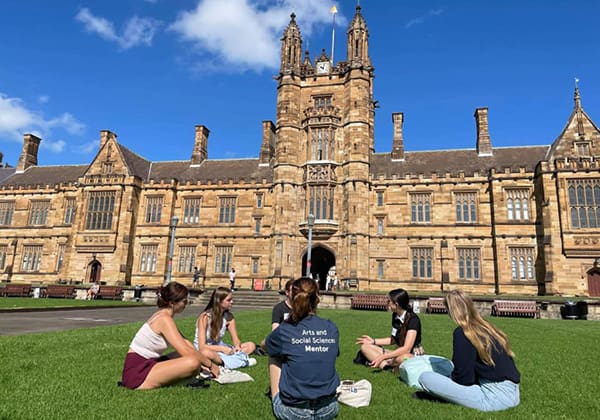I remember my heart sinking when I read that on the degree handbook. I was prepared for a unit of boring tasks and mind-draining lectures. I imagined sitting through classes which, on paper, seemed useful, but in reality, were tedious and ultimately worthless.
But instead, I found myself pleasantly invited into a world of the critical: critical thinking, critical reading, critical feeling. A world in which everything was up for questioning, examining, overturning. So to future first-year Arts students, here’s a reassuring outline of what to actually expect from this single compulsory unit across all FASS degrees.
The unit began by reflecting on why the Arts and Social Sciences matter. Other than allowing for perfect comebacks at students and unforgiving parents who smirk at your ‘useless’ degree choice, and justifying your massive student debt (made larger by fee increases this year), understanding how the Arts and Social Science disciplines are interdisciplinary is remarkably comforting. In the first podcast of the unit (yes, this unit has podcasts) Sarah Barnett, a graduate of USYD, explained how she worked in the health industry with a communications degree, demonstrating how arts and social sciences can take a person into any field they want to delve into. There is no matter that the Arts and Social Sciences can’t be used for – and I will bet on that.
The unit then critically examined critical thinking. Can one think through their emotions? What does it mean to read ‘critically’? Can creativity be ‘critical’?
We then used these ‘critical’ skills to deeply explore issues that are plaguing our world right now. What should be done with historical statues that perpetuate colonial narratives? Is cancel culture helpful or hurtful? Should Universal Basic Income become universal?
It’s not often we get to step back and consider how we think. Especially in what has been dubbed an ‘unprecedented’ era, with the emergence of a post-truth world, knowing how to think critically, and applying that to the world, is an invaluable skill.
The unit coordinators, Alix Thoeming and Bruce Isaacs, said that FASS started this year as the result of a long-term discussion. They wanted to provide a supportive unit for new students in the arts and social sciences disciplines, helping them navigate university life and discover how their discipline can be applied in the wider contemporary world.
Of course, there are some downsides with FASS1000; it is a new, untested unit after all. Although fascinating, sometimes the nicheness of the topics chosen prompted students to ask how they’re ever going to use this specific knowledge in the future. In a way, it’s refreshing that course content is for once not about a career, and one could argue that the most directly useful aspect of the course is the skills gained along the way, rather than the content itself. Nonetheless, according to the unit coordinators, the student response to the unit thus far has been positive, and they have promised to consider any critiques that are identified from Semester 1. I’ve thoroughly enjoyed FASS1000, and it’s nice to see a core unit feel like something more than a compulsory barrier to what students want to study.





